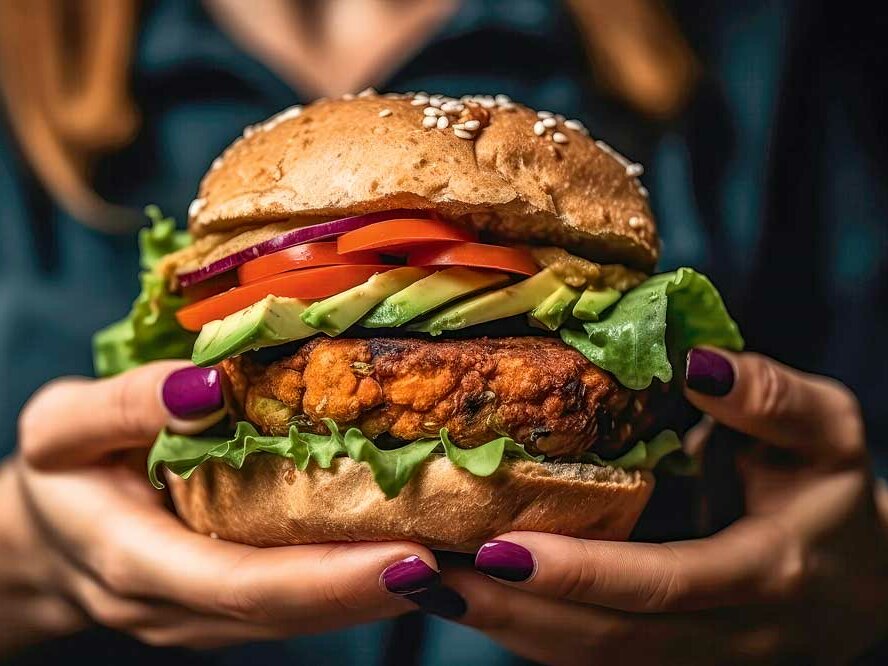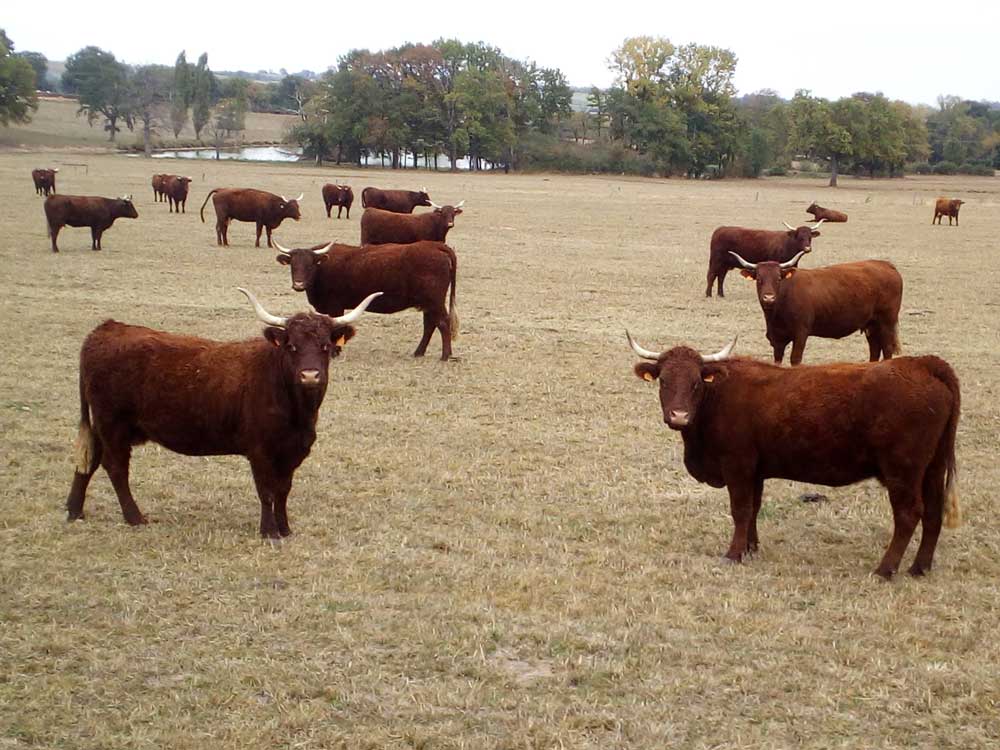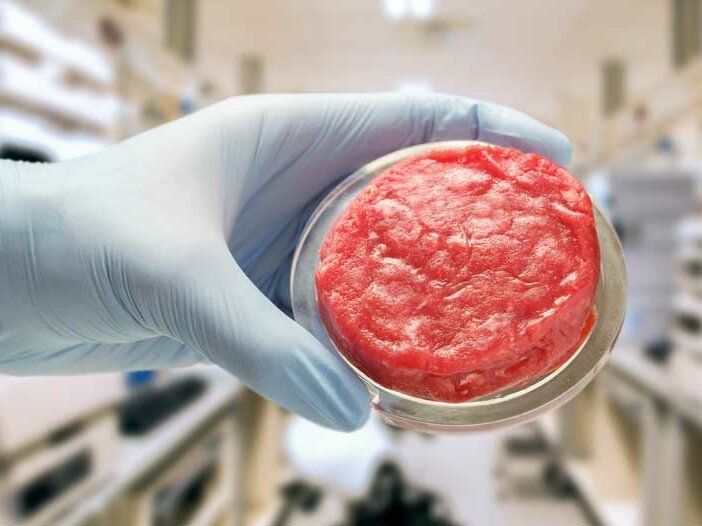Sustainability: More plant-based food for the climate?
By Thomas Künzel, DLG Mitteilungen
In the discussion about sustainable nutrition, it is often suggested that the production of animal-based foods in particular is not sustainable. Demands are then quickly made to significantly reduce livestock farming in order to lessen the environmental impact. But this is a rather one-sided view.
Nevertheless:
- Meat consumers are turning into flexitarians.
- Supermarkets are reserving entire shelf areas for vegetarian and vegan foods.
- The fast food of our days is no longer greasy, but vegetable, digestible and healthy.
All signs indicate that our diet is changing. This is not self-evident, as recently other topics have dominated public discourse: the war in Europe, inflation and rising prices. But there is no getting around the topic of nutrition. It is simply too big, because it affects us all. Every day.
Above all, however, the topic of nutrition is bound up with the most fundamental challenge of our time: the fight against climate change.
Nutrition as a political issue
In the discourse on sustainable nutrition, plant-based and animal-based foods are repeatedly played off against each other. By a first group of actors quite deliberately, when it is not about factual classification at all, but about the placement of plant-based substitutes, animal welfare or animal rights. A second group acts without any particular intention, but in the belief of doing "the good" or "the right" thing. Normally, they simply parrot numbers and information. Popular are rankings of the biggest climate killers or recommendations on nutrition, especially less meat consumption.
Vegan live, in order to save the world? Indeed, vegans have by the renouncement of animal food a sometimes clearly smaller climatic footprint of the nutrition than even most vegetarians. There it would be nevertheless obvious, if the entire mankind accomplishes a consciousness change and renounces from now on animal food. After all according to the world climatic council about a quarter of the global climatic gases is caused by the nutrition and everything which belongs to it. And we produce a good half of the nutrition-related greenhouse gases worldwide through the consumption of animal foods. So simply stop eating meat, the climate is saved, and the discussion about animal welfare is over? Unfortunately, it's not that simple, also because there are other reasons for climate change besides our diet.
An integrated view of the carbon footprint
It is not uncommon to see pretty graphics comparing 1 kg of meat with 1 kg of potatoes or broccoli in terms of their climate impact. This gives the impression that it would be the best idea to eliminate animal foods from the menu and everything will be fine.
In these comparisons, meat regularly comes off worse than plant foods due to the higher raw material input and the system limits set by life cycle assessment. Even if this consideration is permissible, it does not reflect the effects of the entire food system, in which several stages of the value chain, direct and indirect influences and total quantities of food interact and are balanced. Scientists agree that there are comparatively many uncertainties when drawing up life cycle assessments for individual food products.
Contribution to the generation of greenhouse gases
At present, each European produces a good 8 t of greenhouse gases per year, sometimes a little more, sometimes a little less, depending on the analysis. Food contributes about 1.5 tons per year to the personal climate backpack.
According to climate experts, if we wanted to save the world, each person on earth should only produce a total of two, or even better, one ton of greenhouse gases per year. The more people in the world, the smaller our own comfort zone.
Importance of protein quality for nutrition
Livestock products have never been the main suppliers of energy. Humans have always taken this in mainly through cereals, tuberous vegetables and fruit. Rather, it was the micronutrients and high-quality proteins from foods of animal origin that ensured higher survival rates for people even in early agricultural times. Before the agricultural revolution, people hunted to get animal protein.
The common representations neglect exactly that: the protein quality and the supply of micronutrients. The motive behind this is usually to portray animal foods per se as "evil foods." The intention of the senders is mostly to enforce animal protection or animal rights, but the willingness to act for this is not particularly high among the population. For climate change or environmental problems, on the other hand, it is higher.
Save the world and make money?
They are often based on soy, but meat-free alternatives also exist with peas, seitan, in vitro meat and sometimes even insects. Some predictions are that in 15 to 20 years, up to 65% of the meat market could be made up of substitute products. There's an extreme amount of hyping and investment fields being prepared. Startups like Beyond Meat or Impossible Foods and almost all major food companies are looking into the future trend of cultured meat. Behind it are powerful investors like Bill Gates, who has a stake in Impossible Burger. The question is: Will in vitro meat be an alternative - ecologically and economically - in the foreseeable future? Whether the technology will ever achieve acceptable climate efficiency or be capable of mass production is written in the stars. Again, it is important to recognize potential conflicts of interest.
The real solutions will emerge where food has always come from and where it is eaten: in the fields or pastures and on the billions of dining tables around the world. For 10 billion people in 2050, the demand for protein will increase by another 30% to 850 million tons.
Nutrition = enough nutrients in decent quality
The more plant foods in the food supply, the poorer the protein quality, even without replacement foods. It is therefore a paradox of our time to condemn the production of animal foods or to sell vegetarian/vegan nutritional ideologies for all as the diet of the future in Europe, where 120 years ago there was exactly the same lack of protein and micronutrients as today in other regions of the world.
What is clear is that there must be and will be a transformation of the food system. And there has always been, see Europe around 1900 and today. But first and foremost, it's still about producing enough food to get enough nutrients into people across the population so they can stay healthy and productive. That, by the way, is the definition of nutrition. And how to do that in an ecologically and economically sustainable way (especially for farmers) is the challenge of our time.






